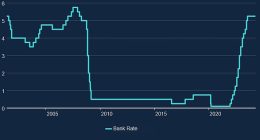For the UK and elsewhere the pandemic’s end is in sight, but less fortunate parts of the world urgently need help
When Covid-19 began to spread rapidly in January 2020, governments across the world had limited strategies to deal with it. Without a vaccine or proven treatments for the disease, or even access to mass testing, the only choice political leaders faced was taking the least bad option available.
There were four approaches that different governments took during the beginning of the pandemic. China, New Zealand, Vietnam and Thailand chose to eliminate the virus at the cost of stopping international travel. Singapore, Hong Kong and South Korea suppressed the virus through rigorous testing, tracing and isolating while avoiding harsh lockdowns. Sweden allowed the virus to spread through the population before realising health systems could not cope with an influx of Covid-19 patients. Meanwhile, European countries including England and France controlled the virus through a cycle of lockdown measures while keeping borders largely open. This resembled a holding pattern for a plane running out of fuel: people grew tired of continual restrictions, the economy suffered and Covid-19 was never fully suppressed.




